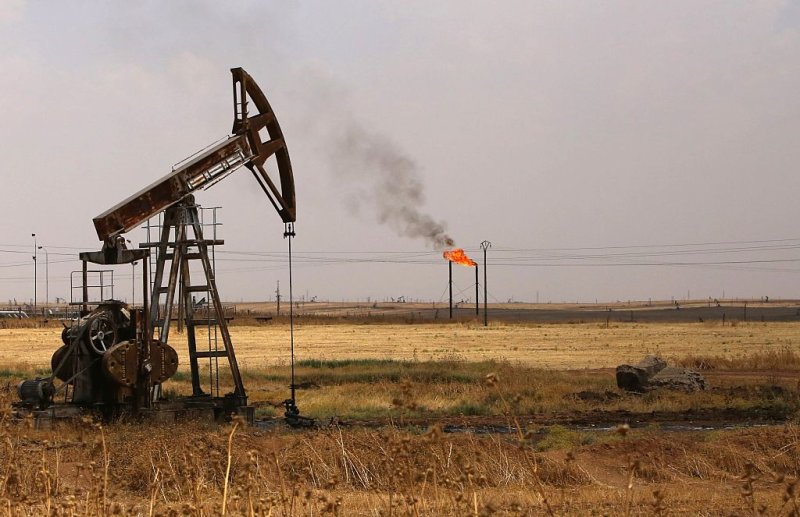
Once again, the issue of Syrian oil is back in the forefront, but in a different way than it was during the Donald Trump administration, with an announcement from the Pentagon that protecting oil is no longer a goal of U.S. forces in Syria. The statement carried with it an implied warning to Russia about an increase in the number of unsafe incidents, and about the continuing challenge to the American presence in Syria.
While the statement adjusts America’s goals in Syria — limiting them to fighting Islamic State and withdrawing assistance to private companies that aimed to exploit Syrian oil resources and the companies’ employees and representatives, as the Pentagon announced — it does not express a strategic change in American policy as much as it aims to distance the U.S. military from any suspicion that may be used to sully its image or cast doubt on the nature of the mission in which it is engaged, such as financially benefiting from Syrian oil and remaining in Syria after defeating the Islamic State group in March 2019. This is the image that was projected after Trump decided not to withdraw American forces from Syria at the end of 2019, justifying his decision by saying that he will leave a few hundred soldiers “where they have the oil.”
Although the American military was never directly involved in exploiting Syrian oil, the Trump administration cast serious shadows of suspicion when it allowed private American companies to exploit this oil under the administration’s protection. The administration made this official in 2020 with the signing of an agreement between the American oil company Delta Crescent Energy LLC and the autonomous Kurdish Regional Government to allow the Syrian Democratic Forces to avoid sanctions that the United States imposed on the central government in Damascus.
The pretext that is always used is to prevent the Islamic State group from obtaining the oil and enabling the Kurdish government to finance efforts to rebuild, while the real goal lies in preventing the central government in Damascus from asserting control over its territory and its oil wealth. This is so despite the economic collapse resulting from blockades and sanctions that are aimed at keeping the government under pressure.
In this sense, a change in the tone of the Democratic administration from that of its Republican predecessor with regard to American policy in Syria does not mean a shift in strategy, but rather, it reflects the way in which the new administration views the future of relations with Russia. Consequently, the change carries with it warnings from America to Moscow about its aim to establish a permanent military presence in Syria and strengthen its identity as a world superpower, Russia representing a challenge to America’s standing in the Middle East. The Pentagon also warned against the dangerous rise in incidents between American and Russian forces, as well as “unacceptable” and unsafe contacts between the Russians and allied forces, accusing Russia of sporadic interference in the international allied campaign against the Islamic State group.
As a result, the tone of the Democratic administration is one that conveys a completely negative perspective based on the fact that Russia “was not helpful,” instead of conveying a sense of the coordination and harmony that previously prevailed to prevent violence and reduce the number of incidents. According to the Pentagon, the U.S. also expects Russia to continue to challenge America’s presence by presenting itself as an alternative to the West, and attempting to play the role of mediator in regional conflicts.

Leave a Reply
You must be logged in to post a comment.